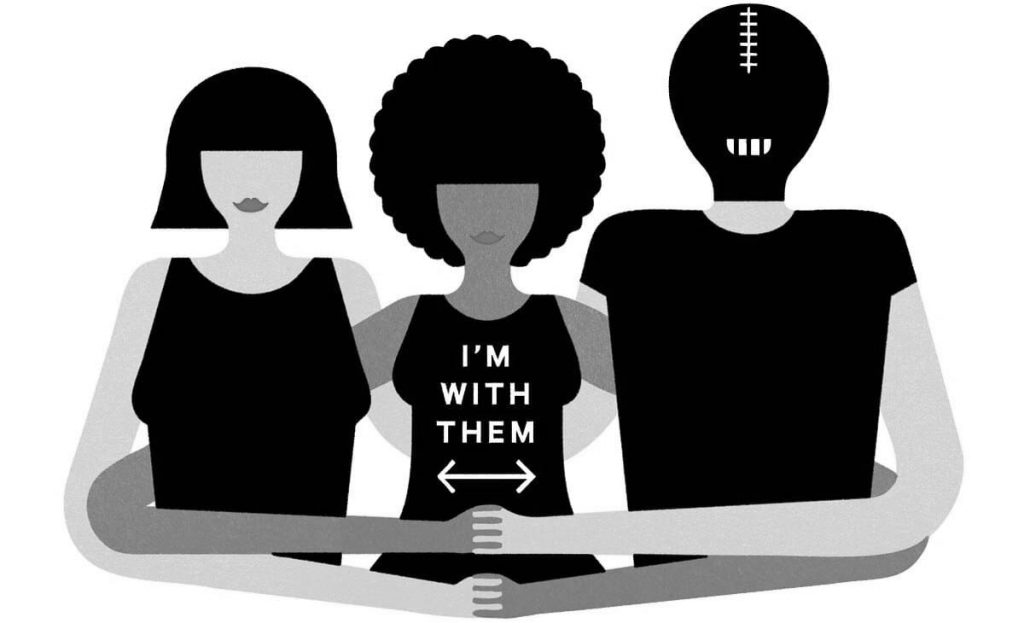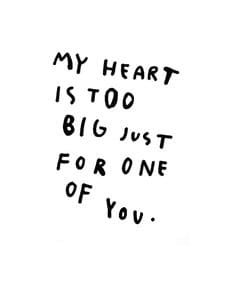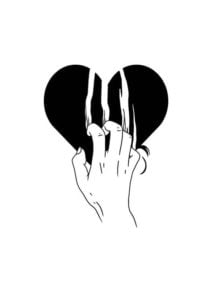Follows our Terms of Service (just herebelow) and our Privacy Policy (scroll down). You MUST read them and accept them before continuing navigating MistressKym.com.
TERMS OF SERVICE
----------------
Please read these Terms of Service (“Terms”, “Terms of Service”) carefully before using mistresskym.com Website (the “Service”) operated by Mistress Kym (“us”, “we”, or “our”).
Introduction
By accessing the Website mistresskym.com, you are agreeing to be bound by these Terms, all applicable laws, and regulations, and agree that you are responsible for compliance with any applicable local law. If you do not agree with any of these Terms, you are prohibited from using or accessing this Website.
The materials contained in this Website are protected by applicable copyright and trademark law.
Minors or people below 18 years old or the legal age in your country (e.g. 21 in the US) are not allowed to use this Website as it contains adult-oriented content. An ID verification will be asked for doubted cases.
If you are a minor or do not agree with the below terms, please leave now. If you decide to stay, you declare that:
you are of legal age in your country (e.g. 18+ or 21+) to visit adult content
you will not involve any person under the legal age in your country
you voluntarily enter the website, you are aware of the consequences and you are solely responsible for your actions
you release and discharge the website owners, providers, and creators from any liability that may arise
you will not share the website content with third-party
you agree with this website Terms of Service, Privacy Policy, GDPR Addendum, and the local laws
bookmarking or directly accessing any other page on this website constitutes an implicit acceptance of this Agreement
Intellectual Property Rights
We own and control all the copyright and other intellectual property rights and the material on our Website: trademarks, logos, service marks, and trade dress.
All the copyright, other intellectual property rights and the material on our Website are expressly reserved.
You may not use any meta tags or any other “hidden text” utilising Mistress Kym’s name or trademarks without our express written consent in each instance.
Restrictions
DOWNLOADERS PROHIBITED: The use of automated downloaders are strictly prohibited. Downloaders use a massive amount of resources & bandwidth, which means other members will have fewer resources available to them.
You are specifically restricted from all of the following:
publishing any Website material in any other media;
modify or copy the Website material;
selling, sub-licensing and/or otherwise commercialising any Website material;
publicly performing and/or showing any Website material;
using this Website in any way that is or may be damaging to this Website;
using this Website in any way that impacts user access to this Website;
using this Website contrary to applicable laws and regulations, or in any way may cause harm to the Website, or to any person or business entity;
engaging in any data mining, data harvesting, data extracting or any other similar activity in relation to this Website;
using this Website to engage in any advertising or marketing;
removing any copyright or other proprietary notations from the Website materials;
If you violate any of these restrictions, your subscription may be terminated by us at any time. Upon the termination of this subscription, you must destroy any downloaded materials in your possession whether in electronic or printed format.
Disclaimer
We do not warrant or represent:
(a) the completeness or accuracy of the information published on our Website;
(b) that the material on the Website is up to date; or
(c) that the Website or any service on the Website will remain available.
To the fullest extent permissible by applicable law, we disclaim all warranties, express or implied, including without limitation, implied warranties of merchantability, fitness for a particular purpose, and non-infringement. And though we take security seriously, we cannot guarantee it. Thus, you understand that the Website and electronic communications sent to you may not be free of viruses or other harmful objects.
Changes
We reserve the right to discontinue, suspend or alter any or all of our Website services, and to stop publishing our Website/Service, at any time in our sole discretion without notice or explanation; and save to the extent expressly provided otherwise in these Terms of Service, you will not be entitled to any compensation or other payment upon the discontinuance or alteration of any Service, or if we stop publishing the Website.
Prices are subject to change without prior notice.
Links to Other Sites
Our Website may contain links to third-party websites. If you click on a third-party link, you will be directed to that site. Note that these external sites are not operated by us. Therefore, we strongly advise you to review the Terms of Service and Privacy Policy of these websites.
We have no control over and assume no responsibility for the content, privacy policies, or practices of any third-party sites or websites.
Limitation of Liability
Mistresskym.com shall not be liable for any direct, indirect, incidental, special, or consequential damage of any kind whatsoever (including, without limitation, attorneys' fees and lost profits or savings) in any way due to, resulting from, or arising in connection with this Website, including its content and any content accessed through this Website, regardless of any negligence.
You accept that we have an interest in limiting the personal liability of our Website and, having regard to that interest, you acknowledge that we are a limited liability entity; you agree that you will not bring any claim personally against our Website in respect of any losses you suffer in connection with these Terms and conditions.
Variation of Terms
Mistresskym.com is permitted to revise these Terms at any time without notice, and by using this Website you are expected to review these Terms on a regular basis.
By continuing to access or use our Service after those revisions become effective, you agree to be bound by the revised Terms. If you do not agree to the new Terms, please stop using the Website/Service.
Assignment
Mistresskym.com is allowed to assign, transfer, and subcontract its rights and/or obligations under these Terms without any notification. However, you are not allowed to assign, transfer, or subcontract any of your rights and/or obligations under these Terms.
Governing Law & Jurisdiction
These Terms will be governed by and interpreted in accordance with the local laws, and you submit to the non-exclusive jurisdiction of the courts for the resolution of any disputes.
Our failure to enforce any right or provision of these Terms will not be considered a waiver of those rights. If any provision of these Terms is held to be invalid or unenforceable by a court, the remaining provisions of these Terms will remain in effect. These Terms, together with the Privacy Policy and the GDPR Addendum constitute the entire agreement between us regarding our Service, and supersede and replace any prior agreements we might have between us regarding the Service.
Account and Membership
You are responsible to safeguard the credentials that you use to access your account and for any activity or action under your credentials, and you agree not to share them with third parties.
Content accessed using your account is solely for your private use, and at your own full responsibility.
Any content shared with others or posted on third-party websites is ground for full prosecution under the law, and banishment from the site. If this happens, your account will immediately be terminated.
Termination
You may terminate your membership at any time, without prior notice. If you wish to terminate your membership, you may only stop your recurring payment through our merchant’s website before next payment deadline.
Upon termination, you will no longer have the right to access the membership content. Cancellation does not entitle you to any refund whatsoever.
Also, if you wish to completely delete your account and delete your data as per your "right to be forgotten" (see our GDPR highlights), you may do so through your member profile.
Entire Agreement
These Terms, together with the Privacy Policy and the GDPR Addendum constitute the entire agreement between us regarding our Service and supersede and replace any prior agreements and understandings.
GDPR Compliance statement
Mistresskym.com respects and complies with the EU General Data Protection Regulations (GDPR).
You can read more about it on the GDPR Addendum.
Affiliate program
By signing up to be an affiliate in Mistress Kym’s Affiliate Program you are agreeing to be bound by the following terms and conditions.
We reserve the right to:
update and/or change the Affiliate terms and conditions from time to time without notice. Continued use of the program after any such changes shall constitute your consent to such changes.
discontinue, suspend or alter our Affiliate program at any time in our sole discretion without notice or explanation; in this case you will not be entitled to any compensation or other payment upon the discontinuance or alteration of the program.
pay commissions on links that are automatically tracked and reported by my system
pay commissions only when there is a click-through your affiliate link to my websites and a purchase of a subscription during that same session
cancel payouts of commissions earned through fraudulent or illegal methods
Not respecting the new terms and conditions will have your account terminated. Upon termination, you will no longer have the right to access the Affiliate program area.
Affiliate account terms:
You must be of legal age (18 years or older)
You are responsible for the security of your account. Mistress Kym will not be liable for anything related to your failure to comply with this
You are responsible for every activity done with your account
You may not maintain more than one account
You may not use the Affiliate Program for any illegal unauthorised purpose. You must not violate any laws in your jurisdiction (including but not limited to copyright laws).
Affiliate program is subject to the other points already mentioned in the Terms of Service:
Intellectual Property Rights
Disclaimer
Links to Other Sites
Limitation of Liability
Assignment
Governing Law & Jurisdiction
PRIVACY POLICY
--------------------------------------------
Your privacy is very important to us. We are committed to protecting it through our compliance with this policy and any applicable laws when you use our services.
This page is used to inform you about our policies regarding the collection, use, and disclosure of Personal Data in line with the requirements of the GDPR if anyone decided to use our website. By consenting to this Privacy Policy you are giving us permission to process your Personal Data specifically for the purposes identified.
If you choose to use our Website, then you agree to the collection and use of information in relation to this policy. If you do not agree with it, your only recourse is not to use our website.
We will not use or share your information with anyone except as described in this Privacy Policy.
The terms used in this Privacy Policy have the same meanings as in our Terms of Service, which is accessible at Mistresskym.com, unless otherwise defined in this Privacy Policy.
Information Collection and Use
While using our Website, you may be asked to provide personal information that you voluntarily provide.
With your consent, we will use your information to provide you with the services you have requested and/or paid for. We use your information to deliver information and/or customized services to you – unless you ask us not to.
You may access, correct, delete and limit the processing of your Personal Data at any time by contacting us via our contact form.
Log Data
We anonymize the data we collect from you (last digits of your IP address). In this way, we are unable to track you or gather any precise geolocation information out of your IP address, which is the only personal data that we collect.
Cookie Policy
A cookie is a file with a small amount of data that is commonly used as an anonymous unique identifier. It is sent by a web server to a web browser and is stored by the browser. Cookies do not typically contain any information that personally identifies a user.
Mistresskym.com uses “cookies” to improve your access to our website. For more information about that, you can refer to the GDPR highlights.
How long we keep your Personal Data
As long as you are our customer we reserve the right to keep all the data we need to fulfill our contractual obligation. Nothing more than that. But, you can at any time download your data, ask us which of your data we have, download this data and withdraw your consent for this data to sit on our servers. You can do that easily from your "my account” section. If you decide to cancel your subscription with us, then we will cancel most of the personal data regarding your persona within a few hours. We only keep financial records until we meet our legal obligations."
Third parties
We may employ trusted third party companies and individuals to facilitate our Service, to provide and perform the Service on our behalf or to assist us in analyzing how our Service is used.
If you give us your consent, these third parties will access your Personal Information but only the ones necessary to perform these tasks on our behalf and are obligated not to disclose or use it for any other purpose.
However, we cannot guarantee that these third parties handle your Personal Data in a reliable or secure manner. We recommend that you read the privacy statements of these companies.
Links to Other Sites
Our Website may contain links to other sites. If you click on a third-party link, you will be directed to that site. Note that these external sites are not operated by us. Therefore, we strongly advise you to review the Privacy Policy of these websites.
We have no control over and assume no responsibility for the content, privacy policies, or practices of any third-party sites or websites.
Security
We value your trust in providing us your information, thus we are striving to use acceptable means of protecting it. But remember that no method of transmission over the internet, or method of electronic storage is 100% secure and reliable, and we cannot guarantee its absolute security.
When you purchase a membership you are redirected to the secure servers of our payment merchant, therefore your payment information is not stored or viewed by us in our website. Please check the Privacy Policy of the merchant for any information.
We will notify you promptly in the event of any breach of your Personal Data within 72 hours.
Your rights
You have rights under the GDPR (read more on our dedicated page here):
to access your Personal Data
to be provided with information about how your Personal Data is processed
to have your Personal Data corrected
to have your Personal Data erased in certain circumstances
to object to or restrict how your Personal Data is processed
to have your Personal Data transferred to yourself or to another business in certain circumstances.
You also have the right to lodge a complaint with the supervisory authority (GDPR) in case of need.
Children’s Privacy
Our Websites do not address anyone under the age of 18 (21 in the US and in other countries).
We do not knowingly collect personal identifiable information from minors under 18 (21 in the US and in other countries). In the case we discover that a minor has provided us with personal information, we immediately delete this from our servers. If you are a parent or guardian and you are aware that your child has provided us with personal information, please contact us so that we will be able to do necessary actions.
Changes to This Privacy Policy
We may update our Privacy Policy from time to time without prior notice. When possible, we will notify you of any changes by posting them in the "updates" section in the members' area. These changes are effective immediately, therefore, your continued use of this website after changes is deemed to be acceptance of those changes. Thus, we advise you to review this page periodically for any changes.
We will always comply with the General Data Protection Regulation (GDPR) when dealing with your Personal Data.







